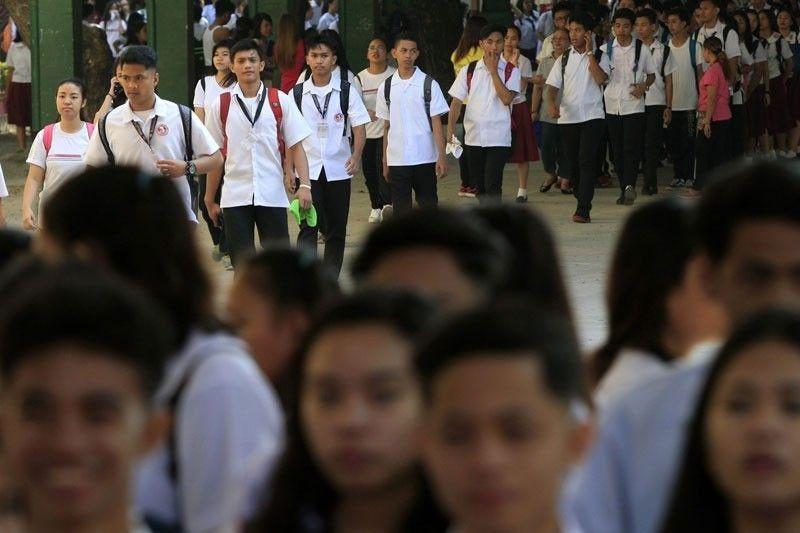‘COVID-19 affects 363 million students worldwide’


‘COVID-19 affects 363 million students worldwide’

The UNESCO said classrooms have been shuttered across the world, causing a record number of students to miss school.
The STAR/Edd Gumban/File
MANILA, Philippines — Close to 363 million learners worldwide have been impacted by disruptions and suspensions of classes in an attempt to slow the spread of the coronavirus disease 2019 (COVID-19), according to the United Nations Educational, Scientific and Cultural Organization.
The UNESCO said classrooms have been shuttered across the world, causing a record number of students to miss school.
Data from the agency showed that the COVID-19 crisis has so far been keeping one in five students worldwide away from school and an additional one in four from higher education classes.
Fifteen countries have ordered nationwide school closures and 14 have implemented localized closures – spanning Asia, Europe, the Middle East and North America.
The UNESCO said there should be emergency response to minimize disruptions of education worldwide.
The agency is stepping up its support to ensure that innovation and inclusion continue despite disruptions and exacerbate inequality through measures like distance learning programs in multiple languages.
UNESCO’s expertise in open and distance learning spans teacher-training platforms, e-learning school models and the development of other information and communications technology.
“We are entering uncharted territory and working with countries to find high-tech, low-tech and no-tech solutions to assure the continuity of learning,” UNESCO director general Audrey Azoulay said.
Azoulay maintained that as countries try to prepare their responses, “international cooperation is vital to share the most effective approaches and support students, teachers and families.”
“We are facing an unusual situation with a large number of countries affected by the same issue at the same time,” UNESCO’s assistant director general for education Stefania Giannini said.
“We need to come together not only to address the immediate educational consequences of this unprecedented crisis, but also to build up the longer-term resilience of education systems.”
To steer the global response, the UNESCO announced the creation of a UNESCO-COVID-19 Emergency Task Force to support national responses and share effective policy responses, with a focus on the most vulnerable countries.
The UNESCO said classrooms have been shuttered across the world, causing a record number of students t
The UNESCO said classrooms have been shuttered across the world, causing a record number of students to miss school


This article is more than a month old, so I assume the numbers have increased tremendously.
The questions in my mind are:
I suppose there is this glimmer of hope:
“In 1665, Cambridge University closed because of the plague. Issac Newton decided to work from home. He discovered calculus & the laws of motion. Just saying.” — Paddy Cosgrave
To TheNewsTalkers members who are parents of locked-in students: Please post a comment on your opinions and experiences with this problem.
1. Yes! Note: Especially when the instructor is literally "instructive." Some instructors mismanage their online classes by treating the online student as 'outsider' - out of spite, in my opinion.
2. Students will do what motivates each individual inside or outside the classroom environment. In other words, it is easy to be serious about online studies if one has a goal and a direction staked out. Or, one can wander along outside the classroom as before inside it.
3. No need to add years of study. Online classes can be condensed to needed information. Even though many such classes are fully packed with study materials and textbooks you can buy.
4. Could be possible. Big maybe. This specific virus caught the world and individual nations unawares. Rightly so. It is a respiratory disease and the first law of life is to breath. All sorts of supply-chains have been nipped in the bud. Even "exotic" forms of needed materials have lapsed in the chain. So, solutions to build a substantial and effective online school curriculum must work around the Coronavirus, and consider its departure from us and its heaven-forbid any unplanned returns.
5. Universities are in the business of survival. Yes! With immediate scalebacks. And of course, receipts of the appropriate funding and grants from online students.